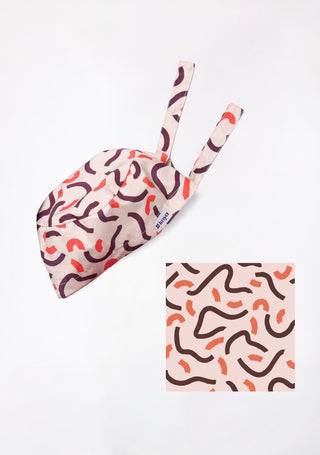In the ever-demanding world of healthcare, where patient safety and hygiene come first, even small details like nail length can make a big difference. This brings us to a common question — Can nurses have nails? Whether you're a nursing student, a practicing nurse, or someone preparing for a healthcare role, understanding the guidelines around personal grooming—especially nails—is essential.
This blog explores why nail hygiene is a hot topic in nursing, what safety practices are recommended, and how nurses can still maintain a professional look without compromising hygiene standards. Let’s dig deep into the reasons behind these grooming rules and what they mean for you as a healthcare professional.
Ready to explore our amazing scrubs collection? Browse the best here
Why Are Nails Important in the Nursing Profession?
As a nurse, your hands are your most used tools. Whether it's administering medications, dressing wounds, or supporting patients emotionally, you're in constant touch—quite literally—with human life. This frequent physical contact places extra emphasis on the cleanliness of your hands, including nails.
Nails, particularly long or artificial ones, can trap dirt, bacteria, and viruses. Even with regular handwashing, these hidden germs may not be fully removed, increasing the risk of healthcare-associated infections (HAIs). In high-risk environments like hospitals and ICUs, even one oversight can compromise a patient's recovery.
Global & Local Regulations on Nail Hygiene for Nurses
Globally, healthcare institutions follow strict grooming protocols, especially around nail length. In countries like the U.S. and U.K., hospitals follow infection control guidelines that explicitly prohibit long nails, artificial nails, or chipped nail polish among nurses and clinical staff.
In India, while there may not be universally enforced rules, many reputed hospitals, nursing schools, and clinics adopt similar policies. The focus is clear: patient safety comes first.
Here’s what most health organizations recommend:
- Keep nails trimmed to less than 0.5 cm (¼ inch) beyond the fingertip.
- Avoid artificial nails and nail enhancements.
- Don’t wear nail polish that is chipped or more than 4 days old.
Hygiene Risks of Long Nails
Let’s break down why long or decorated nails are discouraged in nursing:
1. Bacteria and Germ Buildup
Long nails create hard-to-clean surfaces where pathogens can hide. Several studies show that bacteria like MRSA and Pseudomonas aeruginosa are frequently found under long fingernails—even after handwashing.
2. Glove Punctures
Long nails can easily tear examination gloves, making protective barriers ineffective and exposing both the nurse and the patient to potential contamination.
3. Scratching or Injury to Patients
During patient transfers, wound dressing, or physical assessments, long nails may accidentally scratch or injure delicate skin—especially in pediatric, geriatric, or ICU patients.
4. Decreased Hand Hygiene Efficiency
Thorough hand scrubbing and disinfection become less effective when nails are too long or decorated with enhancements that resist cleaning agents.
Click here to Explore All Women's Scrubs and discover our complete collection of comfortable and stylish medical apparel
Can Nurses Wear Artificial Nails or Nail Art?
This is a commonly asked question. While nail art might look stylish, the healthcare setting is not the place for it. Artificial nails, acrylics, gel coatings, or extensions should be avoided for nurses in clinical roles. These enhancements increase the risk of infection, are hard to clean, and often lead to cracks or breaks that trap pathogens.
Even if your facility permits light nail polish, it should always be:
-
Neutral or nude shades
-
Not chipped or cracked
-
Removed regularly to maintain hygiene
What About Nail Care for Nurses?
Just because nails should be short doesn’t mean they can’t be clean and well-groomed. Basic nail care is essential to maintaining a professional appearance. Here's how nurses can manage nail hygiene effectively:
- Trim nails regularly with clean nail cutters.
- File nails to remove jagged edges.
- Moisturize cuticles to avoid painful tears.
- Keep nail beds clean and dry.
- Avoid biting nails or picking cuticles.
- Stay away from artificial enhancements.
These small practices not only protect patients but also prevent painful nail infections in healthcare workers themselves.
Professional Appearance & Personal Style – Is Balance Possible?
Yes! At Knya, we believe professionalism doesn’t mean you need to compromise entirely on personal expression. With clean, shaped, and naturally short nails, you can still carry a polished and confident look. Match it with our premium medical scrubs and doctor lab coats, and you’ll feel both confident and hygienic.
The Role of Institutional Policies
Each healthcare institution may define its own grooming rules. During onboarding or training, always ask for the hospital or clinic’s dress code. Some may allow basic polish; others may not. If you’re unsure, stick with the safest route—short, natural nails.
Conclusion
The question "Can nurses have nails?" isn't just about style—it's about safety. In a healthcare setting, every single hygiene practice matters. Long or artificial nails, though fashionable, pose real risks—ranging from spreading infections to injuring patients or compromising protective gear like gloves.
While fashion is a form of self-expression, nursing calls for responsibility and prioritizing patient well-being. That doesn’t mean you can’t look good—you absolutely can. Well-trimmed, clean nails, along with high-quality medical scrubs and doctor coats from Knya, let you represent both professionalism and personal pride.
Ultimately, nursing is not just a profession; it's a commitment to care, empathy, and precision. Clean, short nails are just one small but powerful way to uphold this commitment every single day.















